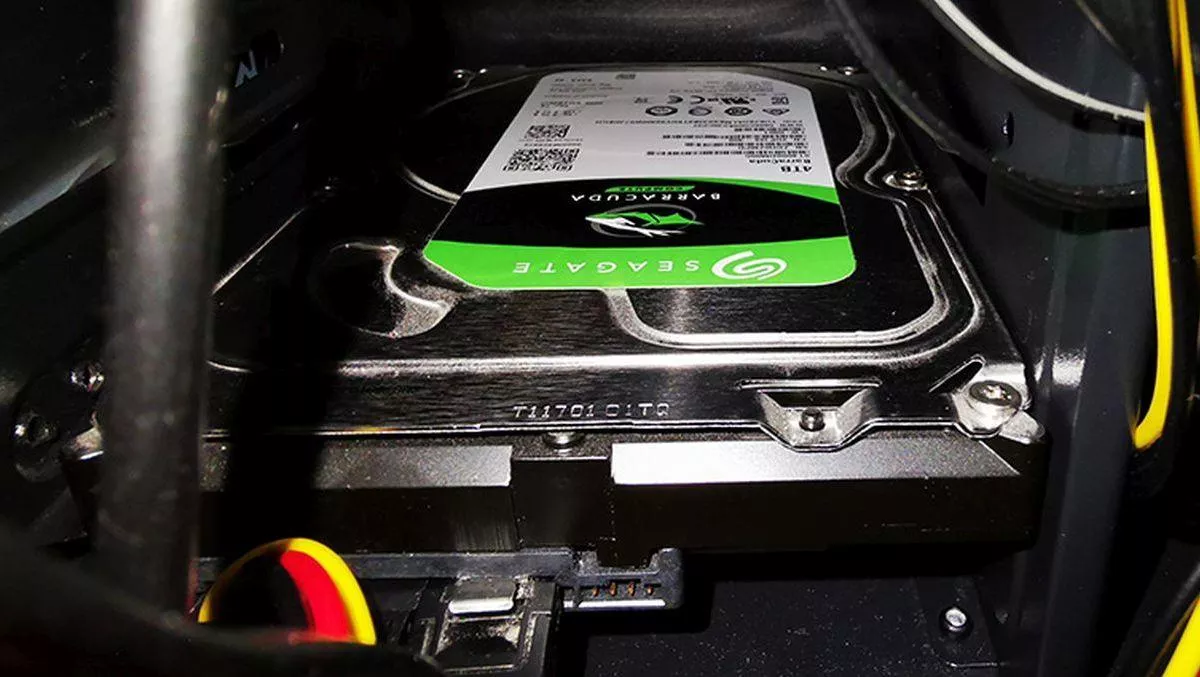
The villain lurking in your PC - a cautionary tale
There's likely something in your desktop PC just waiting to ruin your day.
Like many tech journos, I spend a lot of my time getting all excited about the blistering speeds of the latest solid-state drives (SSDs). These incredible powerhouses of computer storage are a game-changer. Put your operating system on a state-of-the-art SSD and marvel as your machine starts in seconds.
If SSDs are your complete solution to your PC storage needs you've either not got much data or got more money than sense. As great as SSDs are, they don't usually come with a capacity much bigger than 2 TB and are, especially the fancy new NVMe drives, very expensive.
For the storage of large quantities of data (i.e. games in my case), good old-fashioned mechanical hard disk drives are still the most cost-effective way to go. These comparatively unsexy devices still use technology that's been around for over a century - a rotating disk and a stylus - to store and retrieve data.
Nobody wants to talk about hard disk drives any more.
So, when my PC started spluttering, I was a bit perturbed. It was effectively a new machine, with only the hard drives and memory carried over from the last iteration. Was it a virus? Was it just a bad Windows 10 install? Was it the new USB 3.2 Gen 2 card I'd just installed? Or was the PC just over me tinkering with it?
I got a sniff of a possible input/output issue and dived in to investigate. I would seem that the virtually inaudible vibration, that I thought was down to a hastily installed Blu-Ray drive, was the sound of a hard drive in its death throes (or shaking its maracas as someone amusingly described it to me on Twitter).
Further tests with Crystal DiskInfo revealed a S.M.A.R.T. (Self-Monitoring, Analysis, and Reporting Technology) "caution" label… on two drives! Most modern hard drives have S.M.A.R.T. checking devices' performance against set thresholds in order to access the statistical probability of failure. Because, as you likely know, all hard drives, be it SDD or HDD, will eventually fail.
The maraca playing drive was pretty much dead. Removing it improved system performance. But there was still something off. Probably the other drive with a S.M.A.R.T. "caution", I thought.
As I shifted data around, I came across other I/O issue. This one was a bit odd, as I'd been playing games installed on the suspect drive with no problems- but it was very slow at writing data. It was also not the drive with the "caution". Checking this drive, another 4TB Seagate Barracuda HDD, with Crystal DiskMark revealed a perfect score reading data but a disastrous write speed. But, according to DiskInfo, this drive was operating well within the S.M.A.R.T. tolerances.
So, that's two drives down and another perhaps on the way out. All these Seagate drives were manufactured in the last three years. I've been messing with PCs for over 20 years and this is the first time that I've had this level of failure. Most of my hard drives have outlived the machine they've been installed on.
For years now, I've always sworn on either Seagate Barracuda or Western Digital Black disk drives. I've found them both fast and reliable over other brands.
But it would seem that whilst I've been cooing over the latest SSDs, disk drive manufacturers have been playing a bit of sleight-of-hand when it comes to their comparatively dull, but no less essential HDDs. I'm looking at you in particular, Seagate, and your (previously) formidable Barracuda drives.
Seagate Barracuda hard disk drives, last time I looked, were 7200 rpm data juggling behemoths. Today's Barracudas are not only now running at a slower 5400 rpm, they are utilising a dark bit of technology called Shingled magnetic recording (SMR). Basically, this boils down to more capacity for less money. And as we all know; nothing is for nothing.
SMR doesn't affect read speeds, but large writes can slow things down. Traditionally this technology has been reserved for archive drives that are read more than write. Despite what manufactures say, this technology is not suitable for consumer hard drives. High use will accelerate failure. For instance, if you used them in network-attached storage (NAS), which you really shouldn't, they'll likely not last long at all.
You guessed it; all my failing Barracudas are SMR drives. Even the 6 TB replacement that I purchased is an SMR drive.
To be fair, Seagate Barracuda drives are pretty cheap. The comparable 6 TB Western Digital Black drives are in the order of 25% more, but run at 7200 rpm and use the more robust CMR technology. Watch out, though, because Western Digital does use the slower SMR tech in their cheaper and lower capacity drives.
Personally, I'm pretty disappointed by this direction that hard disk manufacturers have gone. Users entrust the likes of Seagate and Western Digital with their valuable data. With more people working from home, we are not just talking about personal files, people are working on essential corporate information using equipment prone to failure.
This revelation makes a robust backup solution even more important, and something that everyone working from home using local storage needs to employ. NAS set-ups are now very accessible and user-friendly.
If you value your data, there's no excuse not to set up a NAS with a RAID (Redundant Array of Inexpensive Disks) for safe data storage and backup. Just make sure that you use the right hard drives.


